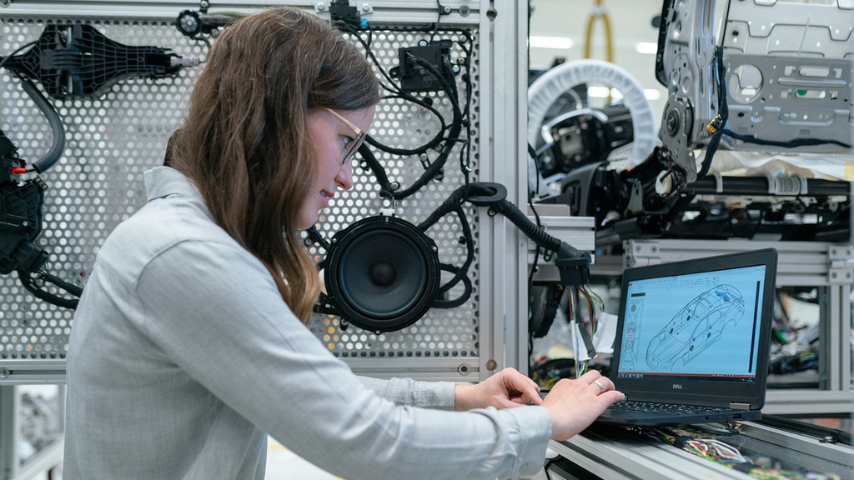Clean Clothes Green
Clean Clothes Green


A washing machine small enough to put on a countertop. Image: Gentlewasher
Advances in technology usually involve replacing manual drudgery with mechanization. The Gentlewasher bucks that trend. The new washing machine has been engineered to launder clothes in a few minutes while using less water than conventional machines and no electricity. But it requires a human to turn a crank.
“We wanted to make a washing device for the five billion people who currently don’t have a washing machine,” says Coen Vermeer, founder of Gentlewasher. “Helping people across the world save time on washing each day was our motivation.”
Basic washing machine design hasn’t changed in decades. To keep the Gentlewasher’s design simple, it drew elements from both hand and machine wash. Users put clothes inside a circular honeycomb drum, load water, and drop in detergent. The user then turns a hand crank for two minutes to wash and two more minutes to rinse.
The interior surface area of the honeycomb drum produces multidirectional flows, leading to effective mixing of the detergent, water, and clothes, Vermeer says.
The machine is small—it can hold around six pounds of clothes—and uses about 4.7 gallons of water per load, compared to 13 gallons of water required by a standard Energy Star-rated washing machine.
Helping people across the world save time on washing each day was our motivation.Coen Vermeer, founder of Gentlewasher
One challenge in designing the product was balancing simplicity against adding features. Every addition affected other parts of the design. “How other parts get impacted, you’ll most often only realize when you build another prototype,” Vermeer says. “And then you’re cursing yourself for not being able to foresee a new problem arising because of the choices you made.”
More for You: Read the latest design and manufacturing stories from ASME.org.
Creating the drum and sizing the machine was the biggest challenge for Vermeer and co-founder Kathak Mehta. “Changing the size of the drum also impacts the effort, including the distance from handle to middle-point and thus handle size, cleanliness and drop distance of clothes, and size of the body and total weight,” he says.
“A washing machine by itself does not clean, it merely facilitates,” Vermeer says. “Since Gentlewasher is manual, it had to give great results in a mere four to five minutes.”
The team also faced choices about different production methods ranging from “low upfront investment and high product cost” to “high upfront investment and low product cost,” Vermeer says. The choices included making prototypes from scrap via fabricated metal parts, creating fiberglass reinforced plastic for the body, vacuumforming, CNC machined prototyping, and creating two prototypes into injection molding. The company settled for a high upfront investment, and today has nine molds, with the biggest one weighing 6,000 kg.
At 23 pounds, the Gentlewasher is small enough to put on a countertop and can wash all types of clothes. That’s especially convenient for small apartments or remote locations where electricity isn’t readily available.But at $269, the Gentlewasher is priced more for a New York City apartment dweller than for the rural villager. However, once the product is well established, Vermeer says, less expensive versions will be offered.




